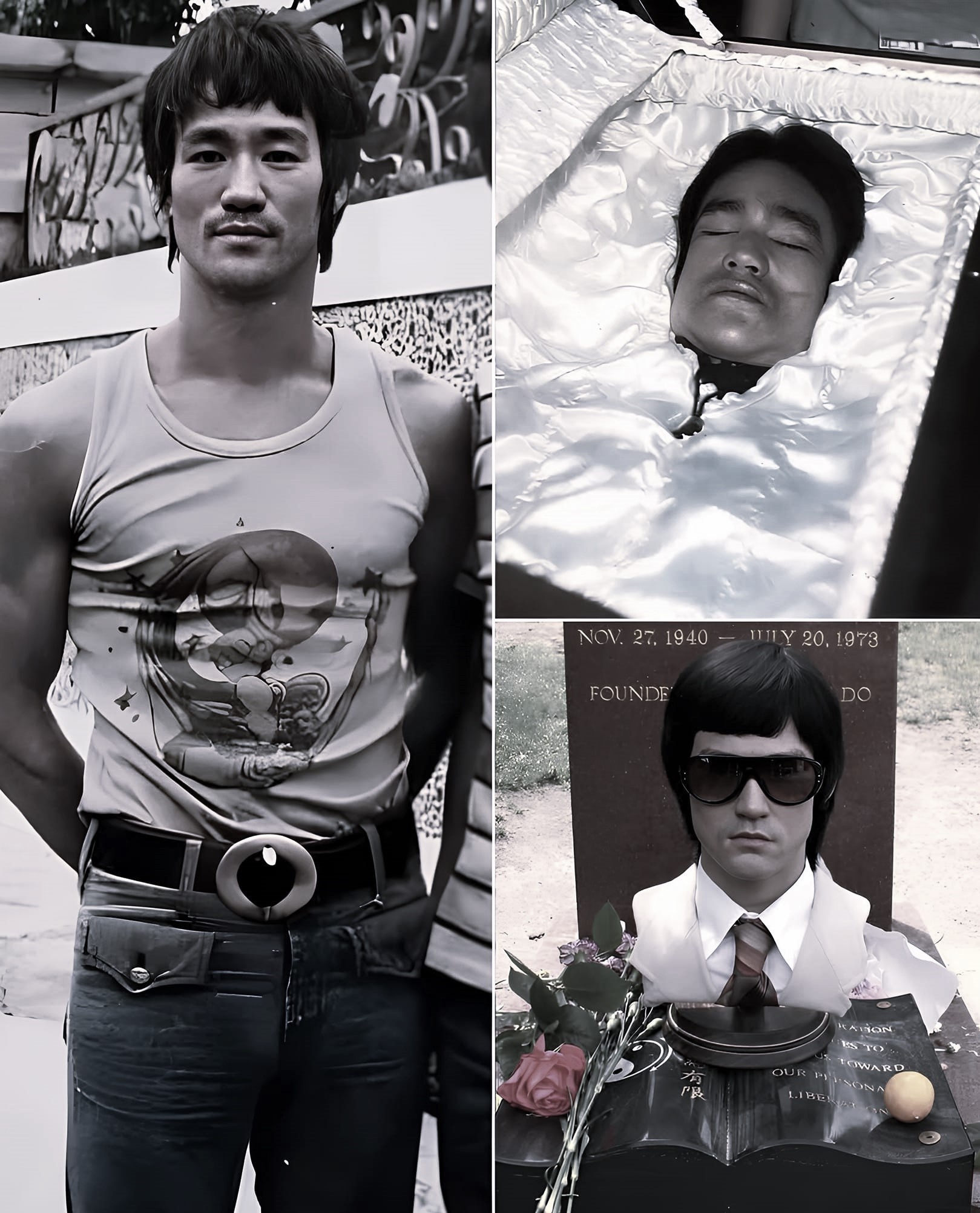Certainly! Here’s a detailed description of Bruce Lee, his life, career, philosophy, and legacy:
Bruce Lee: A Legacy of Martial Arts, Philosophy, and Cultural Revolution
Bruce Lee, born Lee Jun-fan on November 27, 1940, in San Francisco, California, is widely regarded as one of the most influential martial artists of all time and a cultural icon who bridged the gap between Eastern and Western cultures. His impact extends far beyond martial arts, encompassing philosophy, film, and the fight against racial stereotypes in Hollywood. Lee’s legacy is a testament to his dedication, discipline, and visionary outlook on life.
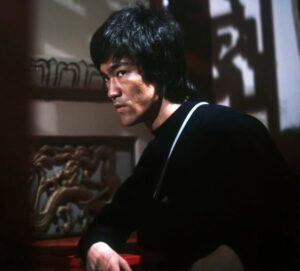
Early Life and Background
Bruce Lee was born in the Chinese Hospital in San Francisco’s Chinatown during the Chinese Year of the Dragon, under the hour of the dragon, which is believed to symbolize strength and vitality. His father, Lee Hoi-chuen, was a famous Cantonese opera singer, and his mother, Grace Ho, was of Eurasian descent. This unique cultural heritage allowed Lee to straddle the worlds of East and West from an early age.
Shortly after his birth, Lee’s family returned to Hong Kong, where he spent most of his childhood. Growing up in Hong Kong during the Japanese occupation and the post-war period, Lee experienced both the challenges of a tumultuous society and the vibrant culture of the region. He appeared in several films as a child actor, showcasing his natural charisma and talent for performance.
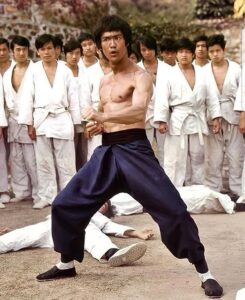
Introduction to Martial Arts
Lee’s journey into martial arts began as a means of self-defense. In his teenage years, he often found himself involved in street fights and sought to refine his skills. He trained in Wing Chun under the legendary master Ip Man. Wing Chun’s focus on efficiency, directness, and adaptability deeply influenced Lee’s martial arts philosophy.
In 1959, Lee returned to the United States to pursue higher education. He enrolled at the University of Washington in Seattle, where he studied drama and philosophy. It was during this time that Lee began teaching martial arts, sharing his knowledge with a growing number of students. His innovative approach to martial arts, which emphasized fluidity and practicality, began to take shape.
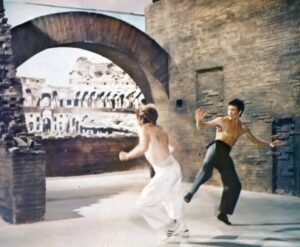
The Birth of Jeet Kune Do
Lee’s dissatisfaction with traditional martial arts forms led him to develop his own philosophy, which he called Jeet Kune Do (JKD), or “The Way of the Intercepting Fist.” JKD was not a rigid style but a dynamic and adaptive system that encouraged practitioners to “absorb what is useful, discard what is not, and add what is uniquely their own.”
Jeet Kune Do broke away from the traditional constraints of martial arts, advocating for a more individualized approach. Lee incorporated techniques from various disciplines, including boxing, fencing, and wrestling, into his practice. His emphasis on real-world applicability and the integration of physical and mental training made JKD a revolutionary concept.
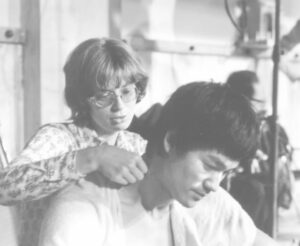
Hollywood and Breaking Stereotypes
Bruce Lee’s entry into Hollywood was marked by challenges and opportunities. Despite his undeniable talent, he faced racial discrimination and stereotyping in an industry dominated by white actors. However, his role as Kato in the television series The Green Hornet (1966–1967) showcased his martial arts prowess and charisma, earning him a dedicated fan base.
Frustrated by the limited opportunities in Hollywood, Lee returned to Hong Kong, where he starred in a series of groundbreaking martial arts films. Movies like The Big Boss (1971), Fist of Fury (1972), Way of the Dragon (1972), and Enter the Dragon (1973) catapulted him to international fame. These films not only showcased Lee’s unparalleled martial arts skills but also challenged stereotypes about Asians, presenting them as strong, intelligent, and heroic figures.
Enter the Dragon, in particular, is considered one of the greatest martial arts films of all time. It was the first major Hollywood production featuring a Chinese lead actor and remains a landmark achievement in cinematic history.
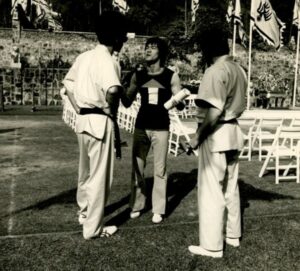
Philosophy and Personal Growth
Beyond his physical abilities, Bruce Lee was a deep thinker and a philosopher. He drew inspiration from various sources, including Taoism, Buddhism, and Western philosophy. Lee’s writings and interviews reveal a man who was constantly seeking self-improvement and understanding.
One of his most famous quotes, “Be water, my friend,” encapsulates his philosophy of adaptability and resilience. Lee believed that one should be flexible and open to change, much like water, which can adapt to any container while retaining its essence.
Lee’s emphasis on self-expression and authenticity resonated with people from all walks of life. He encouraged individuals to break free from societal constraints and embrace their true potential.
Physical Training and Discipline
Bruce Lee’s physical prowess was the result of relentless training and discipline. He was known for his rigorous workout routines, which combined strength training, cardiovascular exercise, and martial arts practice. Lee’s fitness regimen was ahead of its time, incorporating principles of modern sports science and nutrition.
Lee’s commitment to physical excellence was matched by his mental discipline. He believed in the interconnectedness of the mind and body, advocating for holistic development. His dedication to self-mastery inspired countless individuals to pursue martial arts and personal growth.
Tragic Death and Enduring Legacy
On July 20, 1973, Bruce Lee passed away unexpectedly at the age of 32 due to cerebral edema. His untimely death shocked the world and left a void in the realms of martial arts and cinema. Despite his short life, Lee’s influence continues to grow, transcending generations and cultures.
Bruce Lee’s legacy is multifaceted. He is remembered as a martial artist who redefined the discipline, a philosopher who inspired millions, and a trailblazer who broke barriers in Hollywood. His teachings continue to inspire practitioners of martial arts, fitness enthusiasts, and anyone seeking personal growth.
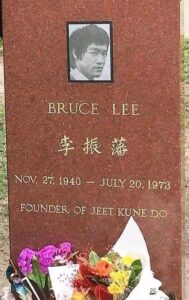
Cultural Impact
Bruce Lee’s impact on popular culture is immeasurable. He brought martial arts into the global spotlight, inspiring a wave of interest in kung fu and other disciplines. His films introduced audiences to the beauty and complexity of Chinese culture, fostering greater understanding and appreciation.
Lee’s fight against racial stereotypes paved the way for future generations of Asian actors and filmmakers. He proved that talent and determination could overcome prejudice, leaving a lasting legacy in the entertainment industry.
Memorials and Tributes
Decades after his death, Bruce Lee remains an enduring icon. Statues, museums, and documentaries celebrate his life and achievements. The Bruce Lee Foundation, established by his family, continues to promote his philosophy and values.
His daughter, Shannon Lee, has been a tireless advocate for preserving and sharing her father’s legacy. Through books, documentaries, and public appearances, she has ensured that Bruce Lee’s message of empowerment and self-expression reaches new audiences.
Conclusion
Bruce Lee was more than a martial artist or a movie star; he was a visionary who transformed the way people view themselves and the world around them. His philosophy of self-expression, adaptability, and perseverance continues to inspire millions. In a world often divided by differences, Bruce Lee’s life and teachings remind us of our shared humanity and the limitless potential within each of us.
If you’d like to explore any specific aspect of Bruce Lee’s life or philosophy further, let me know!


